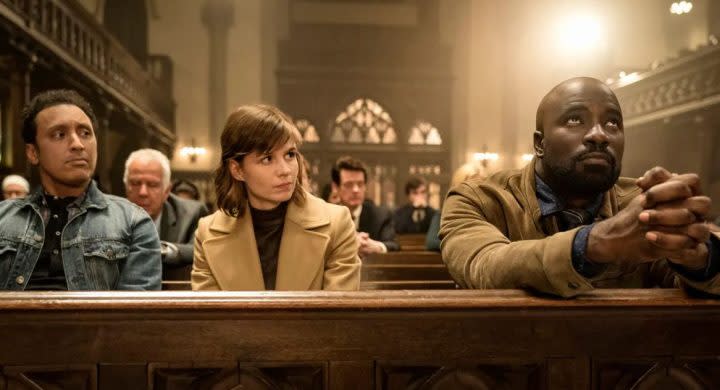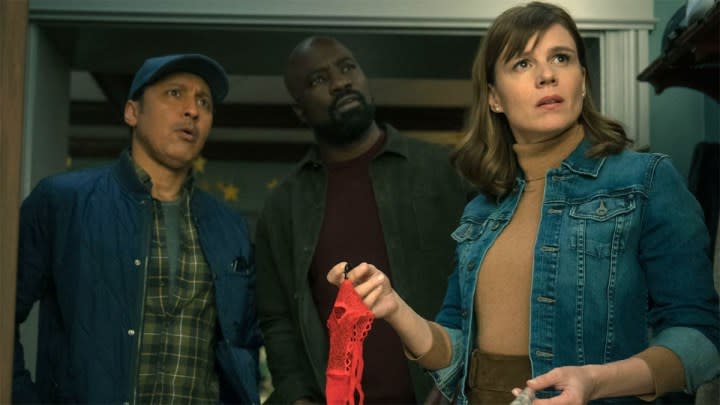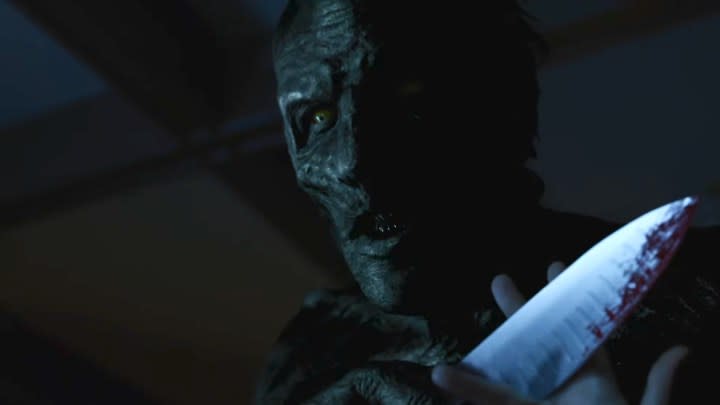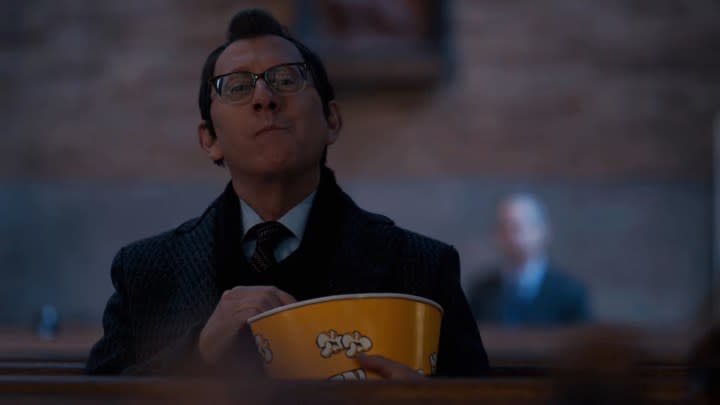Why is the underrated series Evil so popular on Netflix right now?

Having just released its fourth season on Paramount+, Evil has recently found a new life with its first two seasons streaming on Netflix. Created by Robert and Michelle King (The Good Wife), this procedural crime series follows a psychologist (Katja Herbers), a priest-in-training (Luke Cage‘s Mike Colter), and a tech expert (Aasif Mandvi) as they investigate alleged incidents of paranormal and demonic activity on behalf of the Catholic Church.
Despite achieving critical acclaim across its four seasons, many viewers have glossed over Evil, cementing its status as an overlooked hidden gem. Now that the series has landed on Netflix, it has the chance to reach more audiences and achieve its long-overdue hype. For those still having doubts, here are three things that will make naysayers believe in Evil.
The characters

A story is only as good as its characters, and Evil is nothing without its stellar cast. Its three main protagonists (Kristen, David, and Ben the Magnificent) have such terrific banter and chemistry that audiences can’t help but fall for them. Michael Emerson also stands out as the overarching villain, Leland Townsend, an insufferable and evil therapist whose only goal in life is to spread chaos and hatred. And don’t forget the show’s demonic mascot, George (Marti Matulis), who steals the show whenever he crawls out of the shadows to torment Kristen and her family.
The show also gives its side characters the chance to shine as they react to the strange forces of evil that they encounter. Some notable cases include Kirsten’s four adorable daughters and the badass Sister Andrea (Andrea Martin).
Its smart, unpredictable story

As its title implies, this series explores evil as it manifests itself in numerous forms in the modern age. Despite featuring a serialized narrative, the writers are able to present a unique and exciting mystery with each new case that tests the heroes’ skills and beliefs. This allows the show to make thought-provoking stories about current issues related to technology, social media, sexism, racism, police brutality, organized religion, and the criminal justice system.
And even though tall, horned devils appear to the characters in almost every episode, it’s hard to tell if they’re real or just in the characters’ heads. As it blurs the line between the scientific and the supernatural, the series keeps audiences guessing as the protagonists try to explain the unexplainable, subverting expectations in the most surprising ways. Nevertheless, it still leaves the door open for a supernatural presence to be at the root of all the story’s evil, typically related to Leland and his cult of devil worshippers.
Its distinct brand of humor

While stories about ghosts, cults, demonic possession, etc., have been done to death throughout pop culture, Evil stands out from the competition as a meta-satire of the horror genre. The show is well aware of the stories and tropes that each episode invokes, and yet it is able to deconstruct these conventions and present a witty and original narrative.
But even when the show tackles heavy and gruesome subject matter, the writers still find room to inject a quirky and sometimes wicked sense of humor into the story. Such instances include Andrea taking out demons like she’s killing roaches, a large goat demon exercising on an elliptical, or any one of Leland’s naughty antics. This makes the show not too serious and frightening for casual audiences to enjoy, giving more reason for more viewers to catch up to the series before it ends.


